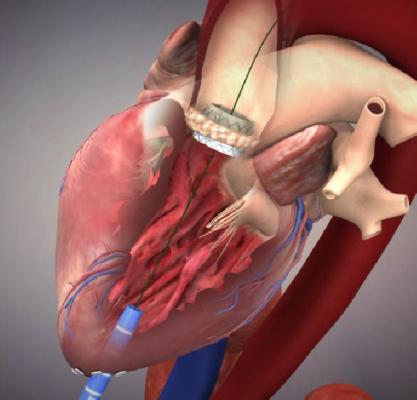
May 26, 2015 — Edwards Lifesciences Corp. announced that 30-day outcomes for intermediate-risk patients treated transfemorally with the SAPIEN 3 transcatheter aortic valve demonstrated very low mortality and stroke rates, and no severe paravalvular leaks. These independently adjudicated data from centers in Europe and Canada are consistent with the outcomes recently reported in a similar study of 1,000 patients treated at 51 centers in the United States. The study was presented at EuroPCR 2015 by Alec Vahanian, M.D., chair of the cardiology department at Bichat University Hospital, Paris.
In the multi-center study of 101 intermediate-risk patients, all-cause mortality was 1 percent. The frequency of other important complications was also low: the disabling stroke rate was 2 percent, major vascular complications were 2 percent and the permanent pacemaker rate was 4 percent. The investigators also noted that the SAPIEN 3 valve had excellent hemodynamic performance, with very low incidence of significant paravalvular regurgitation, as only 2.3 percent of patients had moderate paravalvular leaks and there were no reports of severe leaks.
"Intermediate-risk patients treated with the Edwards SAPIEN 3 valve had remarkably low mortality at 30 days. There were very low rates of all other major complications, notably major vascular complications and new permanent pacemaker implantation," said Vahanian. "These results are meaningful since this study in multiple countries repeated the results in the large U.S. study."
The SAPIEN 3 Trial is a prospective, multicenter, non-randomized study. This analysis was designed to document the 30-day outcomes of intermediate-risk patients treated via the transfemoral approach with the SAPIEN 3 valve at 13 centers in Europe and Canada. The trial is designed to evaluate patients annually for five years.
The SAPIEN 3 valve was approved in Europe in January 2014 for the treatment of high-risk and non-operable patients with severe aortic stenosis. It is not approved for the treatment of intermediate risk patients in any country. The valve is an investigational device not yet available commercially in the United States. It is currently being evaluated in the U.S. in the PARTNER II Trial.
For more information: www.edwards.com


 January 05, 2026
January 05, 2026 









